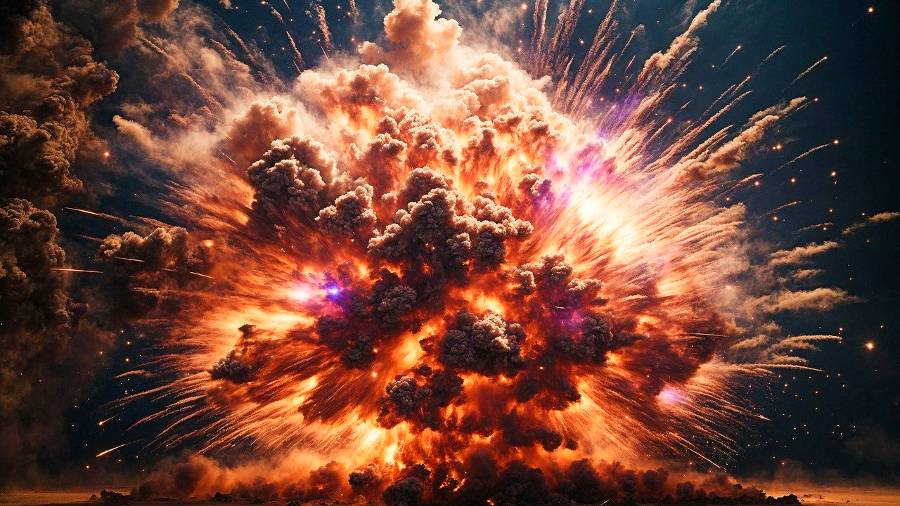Summary: Worcester Polytechnic Institute introduces a pioneering master’s program to address growing explosion risks in modern technologies and industries.
Estimated reading time: 5 minutes
In a significant move to enhance safety in emerging technologies, Worcester Polytechnic Institute (WPI) has introduced the nation’s first Master of Science in Explosion Protection Engineering. This innovative program aims to tackle the increasing fire and explosion risks associated with advanced manufacturing, electric vehicles, and energy storage systems.
The new master’s degree builds on WPI’s strong foundation in fire protection engineering, a field the institute has led since 1978. It comes at a crucial time when explosion hazards are becoming more prevalent in various industries.
Why it matters
Recent years have seen a surge in explosion-related incidents, from industrial accidents to energy storage failures. These events have resulted in loss of life, injuries, and billions in damages. The new program at WPI seeks to address this growing concern by producing experts capable of managing and mitigating these risks.
Bridging the gap between academia and industry
One of the program’s key strengths lies in its close ties with industry partners. Burke Desautels, head of explosion protection at IEP Technologies and a WPI alumnus, highlighted the importance of this collaboration:
“One of the biggest challenges in explosion protection is talent development. There simply aren’t programs to train the next generation of explosion protection engineers. IEP is very excited to contribute our decades of experience and application knowledge to this program.”
This partnership ensures that students will gain practical, real-world knowledge alongside theoretical understanding.
Comprehensive curriculum for a complex field
The Explosion Protection Engineering program offers a wide-ranging curriculum that covers current standards, modern theories, and cutting-edge research. It addresses risks associated with various technologies, including:
- Lithium-ion batteries
- Hydrogen fuel cells
- Manufacturing processes
- Chemical industries
- Food processing (dust explosions)
Students will learn from renowned faculty members who specialize in areas such as dust explosions, mine safety, marine fuel systems, and hydrogen detonation. The program also provides access to state-of-the-art laboratories for hands-on experience.
Growing demand for explosion protection experts
The need for specialists in this field is evident in recent job market trends. Postings for explosion protection roles have increased by 16% over the past year, with average salaries reaching $115,000. This demand reflects the growing awareness of explosion risks across various sectors.
John McNeill, Bernard M. Gordon Dean of Engineering at WPI, emphasized the critical nature of this expertise:
“The demand for leaders with advanced expertise in explosion protection engineering is more critical than ever. These leaders will be essential in driving systemic changes in infrastructure, process safety, regulations, and public awareness.”
Preparing for future challenges
As industries continue to adopt high-energy density storage systems and advanced manufacturing processes, the role of explosion protection engineers becomes increasingly vital. Ali Rangwala, fire protection engineering professor and director of the new program, explained:
“Quantifying and mitigating explosion hazard is key to ensuring safety in today’s world where advanced manufacturing, lithium-ion batteries, and other high-energy density storage systems are being increasingly adopted. Our program offers students and professionals the skills to manage these hazards and advance their careers.”
The program is expected to attract students from various engineering backgrounds, including chemical, aerospace, mechanical, materials, civil, environmental, and fire protection engineering.
Looking ahead
As the first program of its kind in the United States, WPI’s Master of Science in Explosion Protection Engineering is poised to set the standard for education in this critical field. By combining academic rigor with industry partnerships, the program aims to produce graduates who can make significant contributions to safety across multiple sectors.
Hannah Murray, a PhD student at WPI, summed up the program’s potential impact:
“This program will be incredibly valuable in building working professionals who can help rationalize, solve, and justify solutions to complex industry problems. There are problems that we don’t have all the answers for. I am looking forward to taking courses with experienced professors and conducting research in the advanced facilities available at WPI.”
As industries continue to evolve and adopt new technologies, the need for explosion protection expertise will only grow. WPI’s pioneering program is a significant step towards creating a safer future in an increasingly complex technological landscape.
If our reporting has informed or inspired you, please consider making a donation. Every contribution, no matter the size, empowers us to continue delivering accurate, engaging, and trustworthy science and medical news. Independent journalism requires time, effort, and resources—your support ensures we can keep uncovering the stories that matter most to you.
Join us in making knowledge accessible and impactful. Thank you for standing with us!

